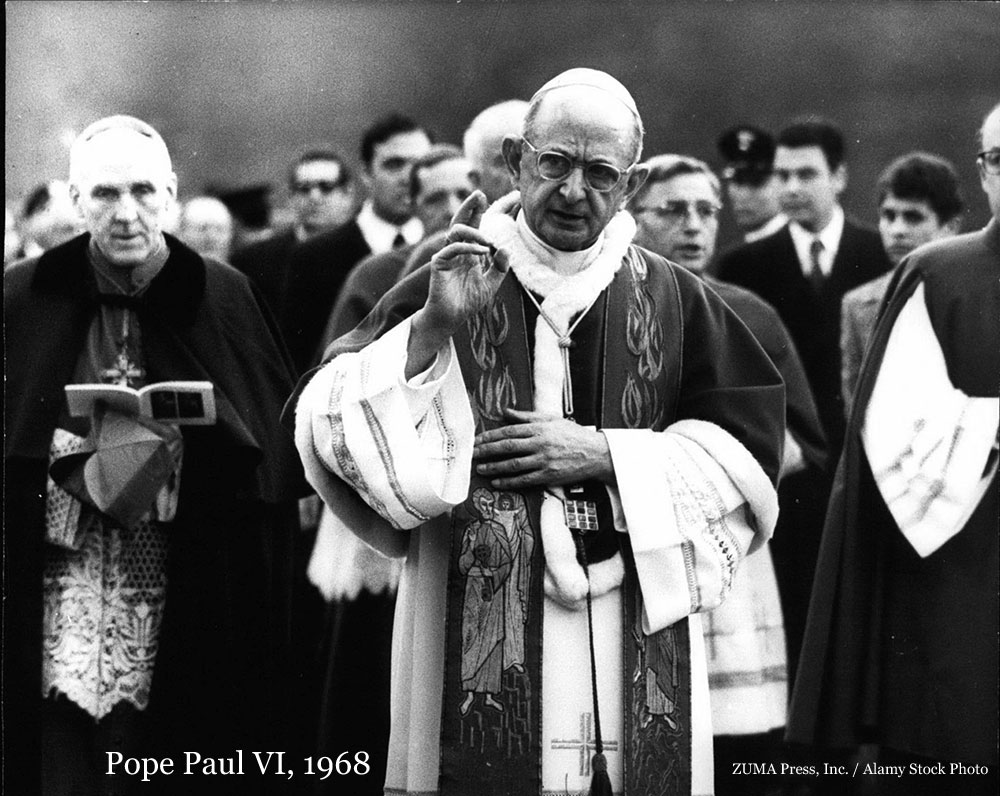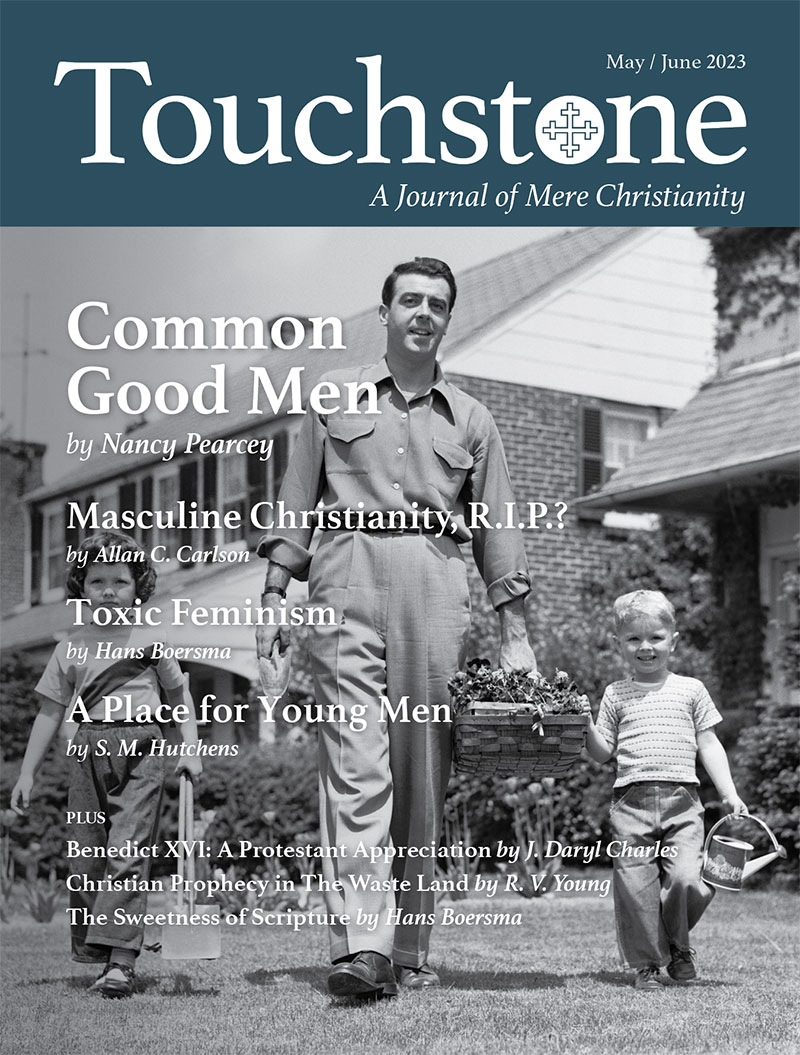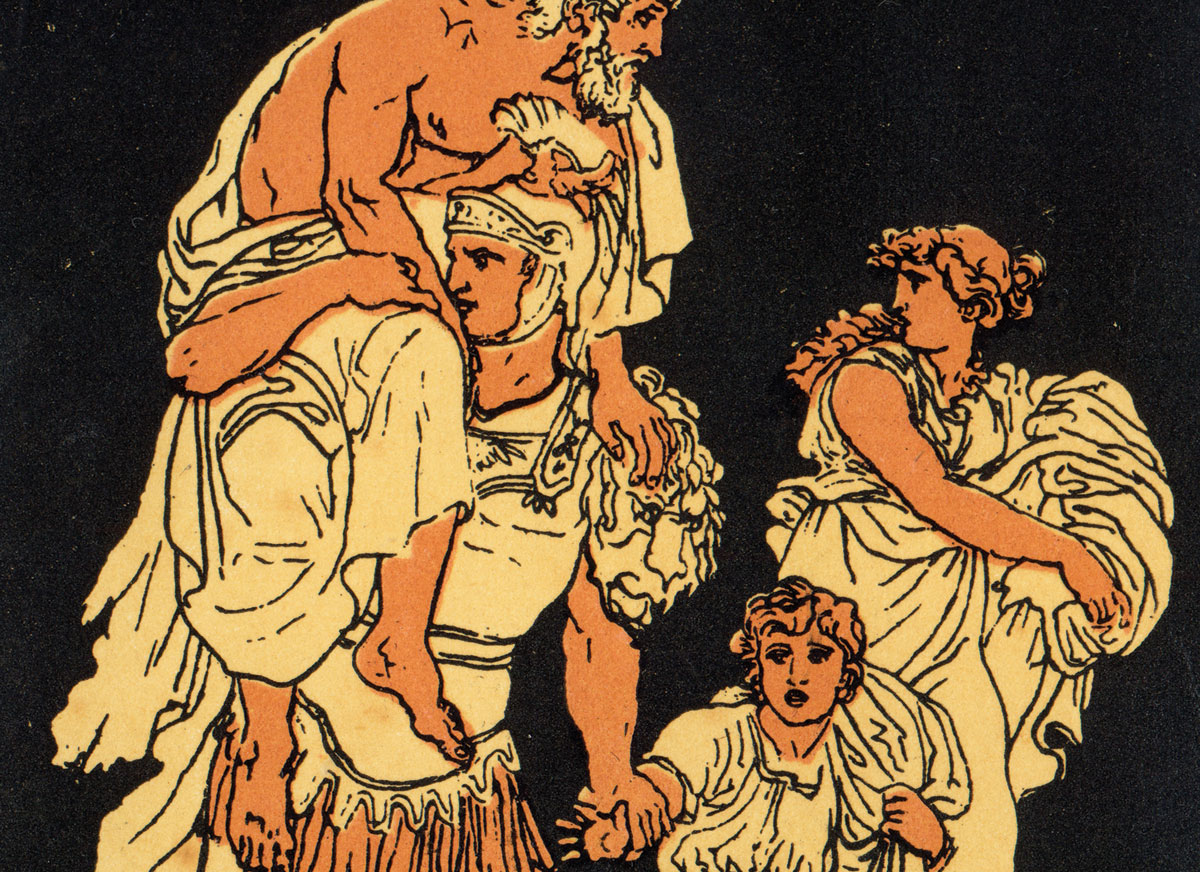Déjà vu All Over Again
on the Enemies of Humanae Vitae Meeting Again
“What’s changed since 1968?” That question appears in a December 30, 2022 Wall Street Journal essay, “Is the Catholic Church Rethinking Contraception?” by Vatican reporter Francis X. Rocca. Nineteen-sixty-eightwas the year Pope Paul VI published his encyclical Humanae Vitae, the most recent encyclical reaffirming the Catholic Church’s condemnation of the use of contraceptives. In December of this past year, Pope Francis convened a three-day conference at the Vatican to “[explain] the implications of the Catholic Church’s prohibition of contraception.”
To ask what’s changed predisposes us to think that much has changed, and yet, if anything, 2023 represents the reemergence of conditions not seen since 1968. The enemies of Humanae Vitae, who are legion, believe that in the person of Pope Francis they have their first opportunity, after a dormancy of more than half a century, to reform the irreformable—just as the 1968 enemies of Casti Connubii (Pope Pius XI’s 1930 encyclical that reaffirmed the ban on contraception) believed they had found in the reform-minded Pope Paul VI.
Before sitting down to write this article, I knew Humanae Vitae had received a chilly reception from most of the Roman Curia when it was first published. I did not know that the Vatican bishops, cardinals, and priests openly supporting Pope Paul could perhaps be counted on the fingers of one hand. Without question, there are more bishops, cardinals, and priests who support the ban on contraception today than there were in 1968.
Change of Course
Pope Paul VI began his pontificate on June 21, 1963, following the death of Pope John XXIII on June 3. The preceding April, Pope John had established a Pontifical Commission on Population, Family, and Birthrate to assist the Holy See in an upcoming United Nations/World Health Organization conference. Pope John had not asked the commission to consider any change to the church’s teaching on contraception.
But by 1964 Rev. Henri de Riedmatten, the commission’s secretary general and chief contraception advocate, saw an opportunity to influence this new pope and insisted that the commission must now chart a new course to review whether the church’s long-standing opposition to contraception was maybe “reformable” after all and whether or not using contraceptives should always be regarded as gravely wrong. Riedmatten was relentless in his efforts, and he ignored or otherwise misrepresented papers written by commission members that ran contrary to his new pro-contraception mandate.
As William E. May of the John Paul II Institute (d. 2014) described it, before 1963 “hardly any Catholics publicly defended contraception.” But in only five years under Riedmatten, the ground shifted almost completely, and now even Pope Paul’s personal theologian, Bishop Carlo Colombo, was ready to allow for at least a limited use of contraceptives. The expectations were high that this new and modern-minded pope would finally, in what would be the last encyclical of his term, lead the Catholic Church into the modern era.
Pope Paul released Humanae Vitae on July 25, 1968. But where in it was the wiggle room? Where was that first small step? Where was anything whatsoever upon which the commission could seek a purchase? Nowhere. Humanae Vitae was airtight. The Pope had reaffirmed, without equivocation, that the use of contraceptives remained, as always, an evil act.
The D.C. Fallout
Five days later, on July 29, the published version of the encyclical made its way around the world. That same evening, nine Catholic professors met at the Catholic University of America in Washington, D.C., to write a “Statement of Dissent” condemning Humanae Vitae. They also worked the phones until 3:30 in the morning, calling prominent Catholics around the world to solicit their signatures on the dissent. They even arranged to have the Statement of Dissent broadcast on local Washington television stations on the evening of the 30th.
A few days later, in nearby Baltimore, a diocesan inner-city pastor hastily convened a late-night meeting of priests in a rectory basement. Fr. James Francis Stafford (later Cardinal Stafford) was one of those invited to the meeting, which he mistakenly presumed had been called to discuss Humanae Vitae. But the pastor insisted there was no time for discussion. They had been invited simply to add their names to the Statement of Dissent, which would be published the following morning in The Baltimore Sun (no doubt the D.C. authors of the statement selected this priest because they knew he could get such a job done on short notice). Each priest was allotted only time enough to stand and declare a public yes or no answer on whether he would sign the Statement of Dissent.
In the end, all but Fr. Stafford agreed to sign it—72 Baltimore priests in all—despite the fact that no one in this cattle call had even been given an opportunity to read the encyclical they affixed their names to condemn. Fr. Stafford was the last to vote. When he stood and announced his “no,” as he later recalled, “the priest/leader, drawing upon some scatological language from his Marine Corps past, responded contemptuously to my decision.”
It is impossible to believe there wasn’t another priest, or even many, in the room that night who also did not want to sign the statement, but who, having weighed the political costs, did not see what good it would do to be the one and only man to defy the ringleader and vote no. Better to live to fight another day is one possible explanation, but there are others.
In his well-known essay, The Inner Ring, C. S. Lewis describes a diabolical desire to not find oneself excluded from the controlling forces of any institution.
And so, today, just as in 1968, the bishops and cardinals of the church’s inner ring believe they have their first opportunity in decades to get the ban on contraceptives lifted for once and for all. And also as in 1968, they believe they have in Pope Francis, as their counterparts mistakenly thought they had in Pope Paul, the first pontiff in decades who will carry through on their designs.
And again, as in 1968, they have the world on their side. In 1968, you’d have been hard-pressed to find many people, Catholic, Protestant, or otherwise, who weren’t already ignoring church doctrine on contraception. Today, according to a 2014 Univision poll quoted in the WSJ essay, “large majorities in traditionally Catholic Brazil (93%), Italy (84%) and the Philippines (68%) favor the use of contraceptives.” And in the United States, “only 13% of weekly Mass-goers said the use of contraception was morally wrong.”
Couldn’t Care Less
This being the case, the casual observer might wonder what difference a change in teaching would make at this point. Why is the Catholic inner ring still so desperate to change church doctrine on a matter that will have no bearing on the actual use of contraceptives among Roman Catholics or anyone else?
The answer is that the advocates for change couldn’t care less about the use of contraceptives. But Humanae Vitae’s teaching is the inevitable outcome of the natural law reasoning about the created nature of man and woman that Pope Paul reaffirmed in the encyclical. Therefore, if the contraceptive ban goes, then so must the natural law reasoning upon which it stands.
Should Pope Francis deem contraceptives permissible and consistent with HV, it will finally open the door to every facet of the sexual revolution since 1968, from sexual identity to marriage redefinition to transgenderism. For example, what is the promise of contraception but orgasms without consequence, thus rendering a contraceptive, anti-conjugal union more or less synonymous with that oxymoron, “gay sex,” and the sexual relationship we call marriage synonymous with same-sex erotic unions?
I will also add that if Pope Francis were to override the reasoned and irreformable magisterium of the church’s own doctrine on this question, the reformers will have finally burst apart the cords that bind them, as they set out to do in 1968. And if he does that, Pope Francis will have set the Catholic Church down on the same tracks laid by the Anglican Communion in 1930, when it became the first church in the world to lift what was, until then, a universal Christian ban on contraception. And, as landing follows launch, the Church of England just recently sanctioned the blessing of same-sex erotic unions.
For those more familiar with a legal analogy, should Pope Francis continue his reinterpretation of Humanae Vitae according to the designs of the inner ring, it will do more for moral relativism globally, both in and outside the church, than what the Supreme Court’s expansive reading of the U.S. Constitution’s Commerce Clause has done to expand the powers of the national government since the 1930s. And just as the Supreme Court did not need to change one word of the Constitution but simply reinterpreted the meaning of those words, there are indications that the inner ring is anticipating a similar sort of reinterpretation of Humanae Vitae by Pope Francis.
Take, for example, the comments by Msgr. Renzo Pegoraro, chancellor of the Pontifical Academy for Life, quoted in the WSJ essay, assuring readers that if the pope does “discover” special circumstances that render contraception licit, he will institute those changes without changing a word of Humanae Vitae. Oh, gracious no, says Msgr. Pegoraro, we come “not to invalidate [Humanae Vitae] but rather to deepen its meaning.” The inner ring needs only a few words written and signed by Pope Francis, probably something they would describe as “less than we hoped,” to provide the wiggle room on which they can build, yet which would elicit the least possible amount of public scrutiny.
But the real stakes could not be higher, and the Wall Street Journal knows it (even if Mr. Rocca never mentions it). And Archbishop Vincenzo Paglia, head of the Pontifical Academy for Life, knows it. And Msgr. Pegoraro knows it. And so, too, does Pope Francis.
Humble Warriors
A friend of mine who shared Cardinal Stafford’s story from that Baltimore basement tells me that the cardinal has become a hero to many Catholic seminarians and young priests for his witness. I was glad to hear it.
But these young men must remember that they only know and admire this story because Fr. Stafford did what no one else would. Any young man who wishes to emulate Fr. Stafford’s witness would do well humbly to admit that there is every reason to think that, had he been in that Baltimore basement on that evening of heat in 1968, he, too, would have aligned himself with the forces arrayed against Fr. Stafford well before the rooster crowed. We should all pray for the humility of these young men, and that through the power of the Holy Spirit, they will recognize their Baltimore moment when it comes.
J. Douglas Johnson is the executive editor of Touchstone and the executive director of the Fellowship of St. James.
subscription options
Order
Print/Online Subscription

Get six issues (one year) of Touchstone PLUS full online access including pdf downloads for only $39.95. That's only $3.34 per month!
Order
Online Only
Subscription

Get a one-year full-access subscription to the Touchstone online archives for only $19.95. That's only $1.66 per month!
bulk subscriptions
Order Touchstone subscriptions in bulk and save $10 per sub! Each subscription includes 6 issues of Touchstone plus full online access to touchstonemag.com—including archives, videos, and pdf downloads of recent issues for only $29.95 each! Great for churches or study groups.
Transactions will be processed on a secure server.
more on Catholicism from the online archives
more from the online archives
calling all readers
Please Donate
"There are magazines worth reading but few worth saving . . . Touchstone is just such a magazine."
—Alice von Hildebrand
"Here we do not concede one square millimeter of territory to falsehood, folly, contemporary sentimentality, or fashion. We speak the truth, and let God be our judge. . . . Touchstone is the one committedly Christian conservative journal."
—Anthony Esolen, Touchstone senior editor










